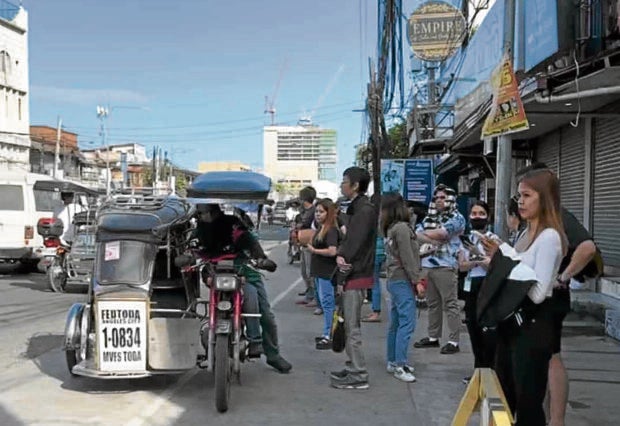MABALACAT CITY, PAMPANGA, PHILIPPINES (ANN/PHILIPPINE DAILY INQUIRER) – On Tuesday, a sudden strike by public utility transport groups left hundreds of workers and students stranded in Mabalacat City and parts of nearby Angeles City.
The strike took local governments by surprise, leaving them unprepared to promptly decide on class suspensions and arrange alternative transport for those affected.
Edward Ferrer, president of the local Rama group affiliated with Piston (Solidarity of Drivers and Operators’ Organisations Nationwide), acknowledged that the Mabalacat City government had attempted to confirm with his group if a transport strike was scheduled for Tuesday.
However, he received the notice of the strike proceeding from the national office of Piston only after 1am on Tuesday, preventing him from informing the local government, which had been in coordination since the previous day.
“But I received the notice that the strike would proceed from the national office (of Piston) only at past 1am (of Tuesday), and I was not able to confirm it to the local government, which had been coordinating with us since yesterday (Monday),” he said.
At around 8am on Tuesday, many commuters were seen waiting for public utility jeeps, or jeepneys, along MacArthur Highway here and along this city border with Angeles where jeeps plying the Angeles-Mabalacat and Angeles-Dau routes usually fetch thousands of passengers daily.
Piston-Rama’s 700 members serve about 10,000 passengers daily, according to Ferrer.
Tricycle drivers once again took advantage of the transport strike by picking up and plying routes beyond their franchise areas.
Alternative ride
Several commuters told the Inquirer that they had to pay five to 10 times their regular jeepney fares after they were forced to ride tricycles.
“I used to pay only the PHP13 jeepney fare. But today, I had to pay the tricycle PHP100 for a distance of only about five kilometres,” a call centre agent said.
“We did not have any idea that there is a (transport) strike today. I had to bring my Grade 3 son to school because there was no class suspension and we had to ride a tricycle and pay PHP120 just to get to school,” a mother of a public school pupil said.
The parent said it would be more difficult to go home in the afternoon as tricycles are usually scarce at the end of classes at around 3pm.
“Even if there’s no strike, it’s already hard for other parents and their kids to get tricycles. Today, I’m sure that it will be even harder to get one because those who usually take jeepneys like us will also be forced to take tricycles,” she said.
The Central Luzon office of the Land Transportation Franchising and Regulatory Board in the City of San Fernando called Tuesday’s transport strike a “surprise strike” after it did not get any notice from transport groups and local government units.
No notice
Ferrer said many of his members were willing to extend their strike until the end of this year if they would be forced to consolidate and get loans for the jeepney modernisation programme of the national government.
The Piston-Rama group also staged a strike on November 22, which resulted in the paralysis of public transport here.
While the city government deployed several vehicles for its “libreng sakay” on that day, many commuters were still left stranded for hours and were forced to ride tricycles.
A female commuter from Mabalacat’s Mabiga village who had to go to Atlu Bola village, located some 6 kilometres away, told the Inquirer that she waited for two hours for a free ride along MacArthur Highway until she decided to just take a tricycle to get to her destination.







